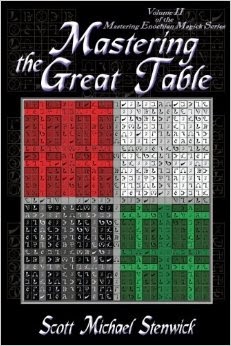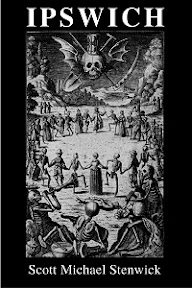As a follow-up to my piece on the "Satanic Panic" of the 1980's and early 1990's, I present this recent article from The New Yorker. Freudian psychology has become so embedded in our culture that many people still believe in the concept of "repressed memories" that can be "recovered" by psychotherapy. But as recent research has shown, this entire model of how the mind supposedly works is fundamentally flawed. Notably, even our conscious memories are less reliable than than we generally expect, and material that we have difficulty recalling is not being "repressed" - much of the information such memories seem to contain is actually gone.
The human brain does an admirable job of coping with this missing information, to the extent that we seem to be able to recall it. But what the brain is really doing there is filling in the gaps with what it considers reasonable assumptions about reality. But as many of those assumptions are context-dependent, it is surprisingly easy to manipulate circumstances in such a way that completely inaccurate recollections can be manufactured. This was the basis of the "recovered memory therapy" that led to the Satanic Panic and produced so many outlandish accusations.
The article deals with this issue from a different perspective, that of law enforcement. One of the problems with the way that suspects in criminal cases are often questioned is that interrogators can manipulate those situations in order to obtain false confessions of criminal activity. Furthermore, in some cases this manipulation can be so complete that suspects come away from questioning believing that they did in fact commit the crime in question.
In television shows and movies false confessions generally only come about because the suspect is protecting someone else, or because they are mentally disturbed and seeking attention. But the truth is much scarier. According to recent research discussed in the article, by the time interrogators finish their questioning, an innocent suspect may in fact believe themselves to be guilty, because they have been manipulated into creating a new memory of themselves committing the crime.
In the early nineteen-nineties, American society was recuperating from another panic over occult influence; Satanists had replaced witches. One case, the McMartin Preschool trial, hinged on nine young victims’ memories of molestation and ritual abuse—memories that they had supposedly forgotten and then, after being interviewed, recovered. The case fell apart, in 1990, because the prosecution could produce no persuasive evidence of the victims’ claims. A cognitive psychologist named Elizabeth Loftus, who had consulted on the case, wondered whether the children’s memories might have been fabricated—in Münsterberg’s formulation, involuntarily elaborated—rather than actually recovered.
To test her theory, Loftus gave a group of volunteers the rudimentary outlines of a childhood experience: getting lost in a mall and being rescued by a kindly adult. She told the subjects, falsely, that the scenario was real and had taken place when they were young. (For verisimilitude, Loftus asked their parents for biographical details that she could plant in each story.) Then she debriefed the subjects twice, with the interviews separated by one or two weeks. By the second interview, six of the twenty-four test subjects had internalized the story, weaving in sensory and emotional details of their own. Loftus and other researchers have since used similar techniques to create false memories of near-drownings, animal attacks, and encounters with Bugs Bunny at Disneyland (impossible, since Bugs is a Warner Bros. character).
Earlier this year, two forensic psychologists—Julia Shaw, of the University of Bedfordshire, and Stephen Porter, of the University of British Columbia—upped the ante. Writing in the January issue of the journal Psychological Science, they described a method for implanting false memories, not of getting lost in childhood but of committing a crime in adolescence. They modelled their work on Loftus’s, sending questionnaires to each of their participant’s parents to gather background information. (Any past run-ins with the law would eliminate a student from the study.) Then they divided the students into two groups and told each a different kind of false story. One group was prompted to remember an emotional event, such as getting attacked by a dog. The other was prompted to remember a crime—an assault, for example—that led to an encounter with the police. At no time during the experiments were the participants allowed to communicate with their parents.
What Shaw and Porter found astonished them. “We thought we’d have something like a thirty-per-cent success rate, and we ended up having over seventy,” Shaw told me. “We only had a handful of people who didn’t believe us.” After three debriefing sessions, seventy-six per cent of the students claimed to remember the false emotional event; nearly the same amount—seventy per cent—remembered the fictional crime. Shaw and Porter hadn’t put undue stress on the students; in fact, they had treated them in a friendly way. All it took was a suggestion from an authoritative source, and the subjects’ imaginations did the rest. As Münsterberg observed of the farmer’s son, the students seemed almost eager to self-incriminate.
Freudian psychology is sometimes invoked during questioning by law enforcement, with interrogators who suggest to suspects that they may have "blocked" the traumatic memory of committing the crime. In fact, we don't "repress" traumatic memories at all. Any psychologist who has worked with post-traumatic stress will tell you that the problem with PTSD is not that memories are blocked, but rather than they are so strongly implanted that patients find themselves unable to forget them or stop thinking about them.
It is possible to commit a crime and not recall it clearly if you are under the influence of drugs or alcohol because of a phenomenon called state-dependent learning. But it has nothing to do with how "traumatic" the memory in question is and everything to do with biochemistry. Because of how the brain encodes information, part of what gets preserved is the biochemical state in which a memory was formed. If the biochemical state of the brain shifts beyond a certain threshold from that in which the memory was formed, it becomes more difficult to access.
This is the same mechanism that accounts for people becoming "blackout drunk." What's interesting about that, though, is that because of the chemical changes that happen when you become intoxicated, events that were "forgotten" during a blackout may become easier to access once you have the same amount of alcohol in your system as when they were formed. However, it is still likely that during the recall process many of the details will still be filled in by the brain and not be particularly reliable.
How about we just get rid of this notion that "repressed memories" are a meaningful construct, at least as far as cognition is concerned? Some memories can be difficult to access, but that difficulty has nothing to do with any sort of "repression mechanism." It has to do with the fact that if you are working to recall a memory, what's going on is that your brain is hard at work fabricating the details that go with the few bits and pieces that you actually can recall.
While it's true that a few of those bits and pieces may be accurate in a recovered memory, the problem is that without corroborating evidence it's hard to tell which parts are correct and which parts are essentially made up. There has been some recent progress on neuroimaging accurate versus fabricated memories, but I expect the difficulty there is going to be that most memories are partially recalled and partially fabricated. Therefore, the heuristic used to distinguish those parts is going to need to be quite complex in order to handle real-world situations.

























No comments:
Post a Comment